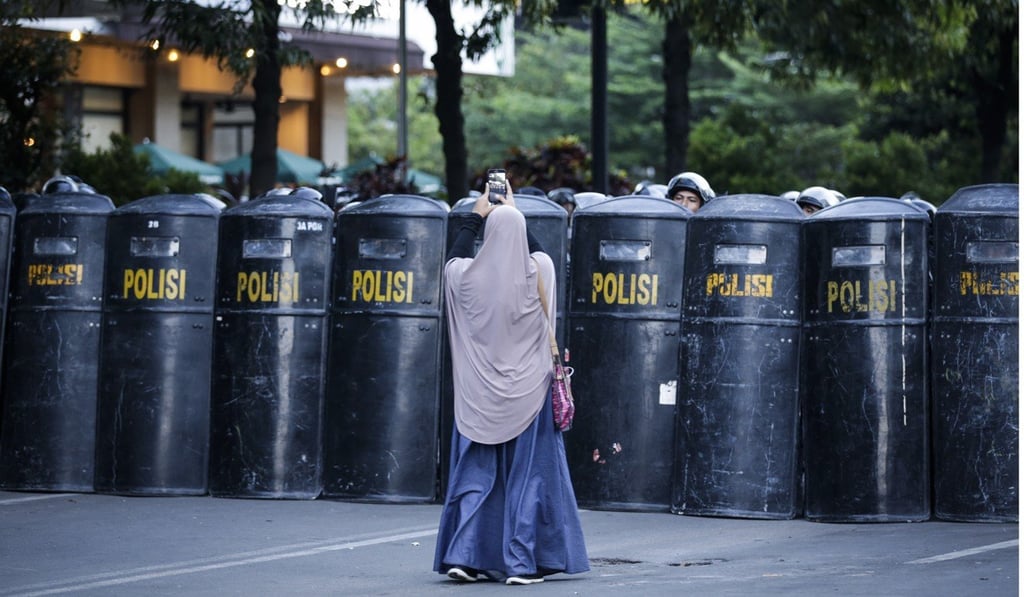Advertisement
Ceritalah | Indonesia riots: how peaceful protests against Joko Widodo’s re-election descended into violent chaos
- Teacher Dita Hidayatunnisa tells of how she and friends narrowly escaped the wrath of rioters as darkness fell on Jakarta last Wednesday
- Further fracturing of social fabric leaves country’s president with mammoth challenges in healing the nation
Reading Time:3 minutes
Why you can trust SCMP

As night fell in the Indonesian capital last Wednesday, Dita Hidayatunnisa could sense trouble in the air.
The 27-year-old teacher and administrator had made the journey from her hometown of Bekasi in West Java to join protests against the re-election of incumbent President Joko Widodo.
But for the second day in a row, protests descended into riots.
Advertisement
Lengthening shadows in the diminishing light added a sinister side to the change in mood that Dita and her friends felt sweeping through Jalan M.H. Thamrin – the broad, six-lane avenue outside the offices of Indonesia’s elections supervisory agency in the heart of the city.

Advertisement
“The people around us were suddenly different. They weren’t just shuffling around like the rest of us. They seemed to have a purpose,” she says.
Advertisement
Select Voice
Select Speed
1.00x
